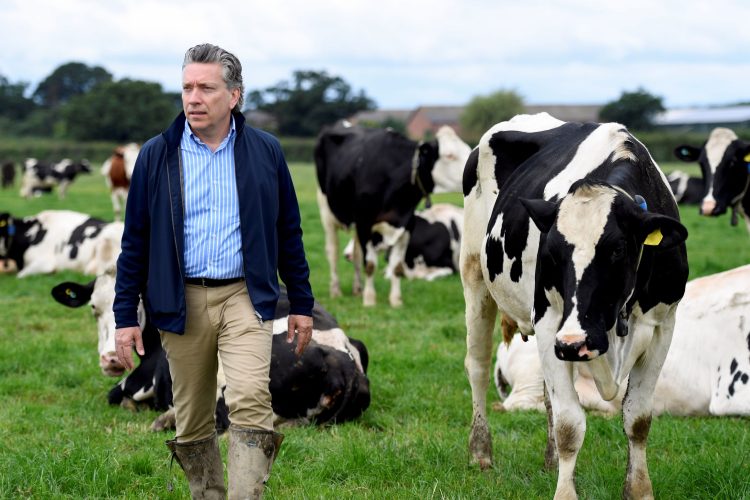Arla warns UK food security at risk from dairy labour shortages
Posted: 13 August 2025 | Ben Cornwell | No comments yet
Arla Foods calls for urgent action as labour shortages across UK dairy farming and manufacturing threaten national food security.


Bas Padberg, managing director of Arla Foods UK. Credit: Arla
UK dairy giant Arla Foods warns that worsening labour shortages in farming and manufacturing are putting Britain’s food security at risk.
Arla is making the call after its fifth annual farmer survey of 1,900 British producers revealed a chronic shortage of skilled workers. Nearly five in six farmers who tried to fill vacancies reported very few or no qualified applicants, rising from 79 percent in 2021 to 84 percent today.
As a result, six percent of farmers have already cut output, while 13 percent say they will leave farming within the next year if the situation does not improve.
Bas Padberg, Managing Director of Arla Foods UK, commented:
Farmers are responsible for feeding a nation with, over 98 percent of people having milk in their fridge. What we’re seeing, is the real impact of these workforce shortages on our farming industry, whether that’s in higher costs or lower milk production. The effect of this is ultimately going to be seen in the price and availability of products on the supermarket shelves, affecting the millions of people that rely on dairy as a source of nutrition in their diet.
We know the government has acknowledged the problem and welcome a focus on talent and development as part of the forthcoming food strategy. But we need to act quickly and we need practical steps that the industry, the education sector and government can take together to support more opportunities for inclusion and growth.”
Addressing the issue
An ageing workforce is worsening the problem, with almost half of UK farmers aged 55 or over and too few new entrants joining the industry. Only three percent of Arla farmers are first-generation, while two-thirds have farms that have been in the family for at least four generations.
Heather Davies, Board of Representative for Arla, said:
Recruiting for farming roles remains a significant challenge, with over 90 percent of applicants coming to us without any previous experience in agriculture. There is a clear disconnect between the education system and pathways into agriculture, and perhaps an even wider gap between people and the origins of their food.
Despite the incredible variety and fulfilment that a career in farming offers, we struggle to attract people to the industry. This is an industry that will always need skilled people, and we must do more to communicate the value and potential of a career in agriculture.”
The labour shortage extends beyond the farm gate. Arla reports that recruiting engineers for its manufacturing sites takes an average of 116 days.
Many companies are already taking steps to improve the situation by introducing apprenticeship schemes. Arla offers four apprenticeship programmes, industrial placements, as well as a new and bespoke apprenticeship scheme at its Taw Valley site, designed to support the innovation and technology involved in its new state-of the art mozzarella facility.
However, Arla believe further action is needed to address the workforce and skills crisis. Therefore, the dairy co-operative is calling for coordinated action between industry, government and the education sector to expand talent pipelines, reform training and apprenticeships, and challenge public misconceptions about careers in food and farming.









